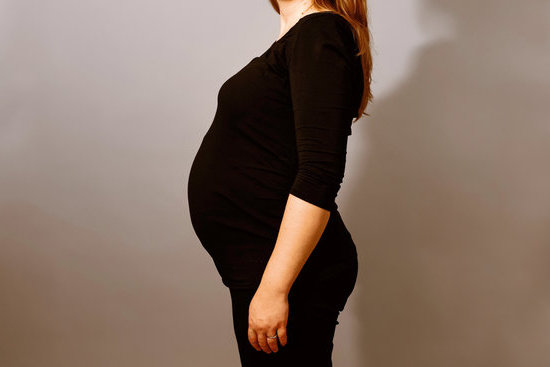During pregnancy, a woman’s nutritional needs increase to support the growth and development of her baby. The effect of nutrition on pregnancy is profound, as it plays a crucial role in both maternal and fetal health. From ensuring proper fetal development to reducing the risk of pregnancy complications, adequate nutrition is paramount for a successful pregnancy journey.
Nutrition provides essential building blocks for the developing fetus and supports the mother’s changing body throughout pregnancy. From essential vitamins and minerals to macronutrients like protein and carbohydrates, a well-balanced diet is vital for the health of both mother and child. In this article, we will explore the impact of maternal nutrition on fetal development and growth, common nutritional deficiencies during pregnancy, how diet influences pregnancy complications, and recommendations for a nourishing prenatal diet.
Understanding the significance of nutrition during pregnancy is crucial for expectant mothers. By prioritizing their dietary needs, women can empower themselves to support their own health and that of their developing baby.
In the following sections, we will delve into the key roles of essential nutrients in supporting a healthy pregnancy, as well as tips for overcoming challenges such as morning sickness and food aversions. Furthermore, we will explore the long-term effects of maternal nutrition on the health of the child, highlighting how important it is to maintain good dietary habits throughout pregnancy.
The Role of Essential Nutrients in Supporting a Healthy Pregnancy
During pregnancy, the importance of nutrition cannot be overstated. The effect of nutrition on pregnancy is profound and has a direct impact on both the health of the mother and the development of the baby.
One crucial aspect of this is ensuring that the mother receives essential nutrients that are vital for a healthy pregnancy. These essential nutrients play a significant role in supporting various bodily functions and contribute to the overall well-being of both the mother and the fetus.
One key nutrient that is particularly important during pregnancy is folic acid, also known as folate. Folic acid is crucial for preventing neural tube defects in babies, making it an essential nutrient for fetal development. Additionally, iron is another vital nutrient that supports a healthy pregnancy.
Iron helps in the production of hemoglobin, which carries oxygen to the body’s cells. During pregnancy, a woman’s blood volume increases significantly, making it important to consume enough iron to support this increase.
Another essential nutrient for pregnant women is calcium. Calcium is necessary for developing strong bones and teeth in the baby, and it also helps with muscle function and nerve signaling in both the mother and fetus. Consuming enough calcium-rich foods or taking supplements can help ensure that both mother and baby receive an adequate amount of this vital nutrient.
| Nutrient | Importance |
|---|---|
| Folic Acid | Preventing neural tube defects in babies; essential for fetal development. |
| Iron | Supports increased blood volume during pregnancy; important for oxygen transport. |
| Calcium | Crucial for developing strong bones and teeth in the baby; aids muscle function and nerve signaling. |
Impact of Maternal Nutrition on Fetal Development and Growth
During pregnancy, a mother’s nutrition plays a crucial role in the development and growth of the fetus. The nourishment that a woman receives has a direct impact on the health and well-being of her unborn child. Here are some key points to consider about the effect of nutrition on pregnancy:
- Proper intake of essential nutrients such as folate, iron, calcium, and omega-3 fatty acids is vital for fetal development. These nutrients support the formation of the baby’s organs, bones, and overall growth.
- Maternal malnutrition can lead to intrauterine growth restriction (IUGR), causing low birth weight and other complications for the baby
- Adequate maternal nutrition is linked to a reduced risk of certain birth defects, such as neural tube defects
Ensuring that pregnant women receive the necessary nutrients is essential for preventing developmental issues in their babies. This emphasizes the importance of addressing nutritional needs during pregnancy to promote healthy fetal development and growth.
As expectant mothers strive to provide optimal nutrition for their babies, it’s important to seek guidance from healthcare professionals to create a well-balanced prenatal diet plan. By doing so, women can give their babies the best start in life by prioritizing their own nutritional needs throughout pregnancy.
Common Nutritional Deficiencies During Pregnancy and Their Effects
During pregnancy, it’s crucial for women to maintain a well-balanced diet to ensure both their own health and the healthy development of their baby. Unfortunately, many expectant mothers experience nutritional deficiencies that can have adverse effects on their pregnancy.
Iron Deficiency
Iron is a vital nutrient during pregnancy as it helps in the production of hemoglobin, the protein in red blood cells that carries oxygen to tissues throughout the body. A deficiency in iron can lead to anemia, which can cause fatigue, weakness, and dizziness in pregnant women. In severe cases, iron deficiency anemia can increase the risk of premature birth or low birth weight in babies.
Folic Acid Deficiency
Folate or folic acid is essential for fetal growth and development, especially during the early stages of pregnancy. A lack of folic acid can lead to neural tube defects such as spina bifida or anencephaly in newborns. It’s recommended for pregnant women to take folic acid supplements and consume folate-rich foods like leafy greens, citrus fruits, beans, and fortified cereals.
Vitamin D Deficiency
Vitamin D plays a crucial role in bone health and immune function. During pregnancy, a deficiency in vitamin D can increase the risk of preeclampsia, gestational diabetes, and bacterial vaginosis. Moreover, it can also affect the baby’s bone development and growth. It’s important for pregnant women to spend time outdoors for exposure to sunlight and consume foods rich in vitamin D such as fatty fish, egg yolks, and fortified dairy products.
In summary, addressing common nutritional deficiencies during pregnancy is crucial for ensuring a healthy pregnancy and promoting optimal fetal growth and development. It’s important for expectant mothers to work closely with healthcare providers to monitor their nutrient levels and make dietary adjustments as needed to support a successful pregnancy journey while understanding the effect of nutrition on pregnancy.
How Diet and Nutrition Can Influence Pregnancy Complications
During pregnancy, the effect of nutrition on pregnancy complications is significant. A mother’s diet and nutritional intake can greatly impact her risk of developing complications during pregnancy, such as gestational diabetes, preeclampsia, and preterm birth. Poor nutrition can also lead to low birth weight in infants, which increases the likelihood of health problems later in life.
One major way in which diet affects pregnancy complications is through the development of gestational diabetes. Consuming a diet high in refined sugars and unhealthy fats can lead to insulin resistance in pregnant women, increasing their chances of developing gestational diabetes. This condition not only poses risks to the mother’s health but also increases the likelihood of macrosomia (large birth weight) in babies, as they receive an excessive amount of glucose from their mother’s blood.
Additionally, inadequate nutrition during pregnancy can contribute to the development of preeclampsia, a serious condition characterized by high blood pressure and damage to other organ systems. Poor maternal nutrition has been linked to an increased risk of preeclampsia due to its effects on blood vessel function and inflammatory processes. Moreover, malnutrition can lead to preterm birth, as the lack of essential nutrients can compromise the development and strength of the uterine muscles, leading to premature labor.
| Nutritional Influence | Pregnancy Complication |
|---|---|
| Gestational Diabetes | Increased risk due to poor diet |
| Preeclampsia | Linked to inadequate nutrition |
| Preterm Birth | Lack of essential nutrients leads to premature labor |
Recommendations for a Well-Balanced and Nourishing Prenatal Diet
A well-balanced and nourishing prenatal diet is essential for supporting the health and development of both the mother and the baby during pregnancy. The foods that a woman eats during pregnancy have a significant impact on her overall health as well as the growth and development of the fetus.
It is important for expecting mothers to consume a variety of nutrient-dense foods to ensure that they are getting all the essential vitamins and minerals needed for a healthy pregnancy.
Key Nutrients to Include in a Prenatal Diet
Some key nutrients that are especially important during pregnancy include folic acid, iron, calcium, vitamin D, and omega-3 fatty acids. Folic acid is crucial for preventing neural tube defects in the baby, while iron is needed to support the increased blood volume in the mother’s body. Calcium is essential for bone development, while vitamin D helps with calcium absorption. Omega-3 fatty acids are important for brain and eye development in the fetus.
Recommended Food Choices
Pregnant women should focus on consuming a variety of fruits, vegetables, whole grains, lean proteins, and dairy products. It’s also important to stay hydrated by drinking plenty of water throughout the day. Some examples of nutrient-rich foods that pregnant women should include in their diet are leafy greens, citrus fruits, nuts and seeds, lean meats, poultry, fish (with low mercury content), low-fat dairy products, and whole grains.
Avoidance of Harmful Substances
In addition to focusing on including nutritious foods in their diet, pregnant women should also be mindful of avoiding harmful substances such as alcohol, tobacco smoke, and certain types of fish that may contain high levels of mercury. These substances can have negative effects on fetal development and should be avoided during pregnancy.
By following these recommendations for a well-balanced prenatal diet, pregnant women can support their own health as well as the healthy growth and development of their baby. The effect of nutrition on pregnancy cannot be overstated; it plays a crucial role in ensuring a successful pregnancy and promoting long-term health outcomes for both mother and child.
The Significance of Weight Management and Nutrition for a Healthy Pregnancy
During pregnancy, maintaining a healthy weight and proper nutrition are crucial factors that can significantly impact the health of both the mother and baby. Here are some important points to consider for weight management and nutrition during pregnancy:
1. Importance of a well-balanced diet: Consuming a variety of nutrient-dense foods is essential for meeting the increased nutritional needs during pregnancy. Foods rich in essential nutrients such as folate, iron, calcium, protein, and omega-3 fatty acids play a vital role in supporting the development of the baby and preventing maternal deficiencies.
2. Monitoring weight gain: It’s important for pregnant women to monitor their weight gain throughout pregnancy to ensure it remains within a healthy range. Excessive or inadequate weight gain can contribute to various pregnancy complications such as gestational diabetes, preeclampsia, and preterm birth. Healthcare providers can offer guidance on appropriate weight gain based on individual factors such as pre-pregnancy BMI.
3. Staying active: Incorporating regular physical activity into a daily routine can complement a well-balanced diet and contribute to healthy weight management during pregnancy. Low-impact exercises such as walking, swimming, and prenatal yoga can help improve circulation, reduce discomfort, and support overall well-being.
By prioritizing proper nutrition and weight management throughout pregnancy, women can positively influence their own health as well as the long-term well-being of their child. Understanding these factors is crucial in empowering expectant mothers to make informed choices that promote a successful and healthy pregnancy.
Tips for Overcoming Morning Sickness and Aversions to Certain Foods During Pregnancy
Morning sickness and food aversions are common experiences during pregnancy, often causing discomfort and challenges in maintaining a healthy diet. The effect of nutrition on pregnancy is significant, and finding ways to overcome these hurdles is crucial for the well-being of both the mother and the growing baby.
One of the most helpful strategies for dealing with morning sickness and food aversions is to eat frequent, small meals throughout the day. This can help in managing nausea by keeping the stomach from becoming too full or too empty. Choosing bland, easy-to-digest foods such as crackers, toast, or rice can also provide relief. It’s important to stay hydrated as well, so sipping on water or ginger tea can help soothe an upset stomach.
Additionally, it may be beneficial to identify foods that trigger nausea or aversions and find suitable substitutes. Sometimes, cold or room temperature foods are better tolerated than hot foods, and experimenting with different cooking methods or flavors can make certain foods more appealing. Seeking support from a healthcare provider or nutritionist can also provide personalized guidance and recommendations tailored to individual needs.
Overall, understanding the impact of nutrition on pregnancy and implementing practical strategies to cope with morning sickness and food aversions can contribute to a more nourishing diet during this crucial time. By being proactive and adaptable in managing these challenges, expectant mothers can prioritize their health and provide the best possible start for their growing baby’s development.
The Long-Term Effects of Maternal Nutrition on the Health of the Child
Maternal nutrition during pregnancy plays a crucial role not only in the immediate health of the mother and the developing fetus, but also in the long-term health of the child. The nutrients consumed by a mother during pregnancy can have a lasting impact on the overall health, growth, and development of her child well into adulthood. It is important for expectant mothers to understand how their dietary choices can influence the future health of their offspring.
Research has shown that maternal nutrition can affect the risk of chronic diseases such as obesity, diabetes, and cardiovascular issues in children later in life. For example, inadequate intake of essential nutrients like folic acid, iron, and calcium during pregnancy has been linked to increased susceptibility to certain health conditions in children, including neural tube defects and developmental delays.
On the other hand, a well-balanced diet rich in vitamins, minerals, and other vital nutrients can contribute to a lower risk of chronic diseases in offspring.
Furthermore, studies have demonstrated that a mother’s diet during pregnancy can impact the child’s cognitive function and behavioral development. For instance, omega-3 fatty acids found in fish and other foods are known to support brain development in fetuses.
Deficiencies in these essential fatty acids due to poor maternal nutrition may result in adverse effects on a child’s cognitive abilities and mental health as they grow older. Therefore, by prioritizing adequate and varied nutrition during pregnancy, expectant mothers can positively influence the long-term health outcomes of their children.
Conclusion
The effect of nutrition on pregnancy is undeniable, and it plays a crucial role in ensuring the health and well-being of both the mother and the developing fetus. As highlighted throughout this article, essential nutrients are vital for supporting a healthy pregnancy and promoting optimal fetal development and growth. Maternal nutrition has a direct impact on the long-term health of the child, making it even more imperative for expectant mothers to prioritize their diet.
Common nutritional deficiencies during pregnancy can have detrimental effects on both the mother and the baby, underscoring the importance of consuming a well-balanced and nourishing prenatal diet. Additionally, maternal nutrition can influence the occurrence of pregnancy complications, further emphasizing the need for women to pay close attention to what they eat during this critical time.
In conclusion, empowering women to prioritize their nutrition for a successful pregnancy is essential for ensuring positive outcomes for both mother and child. By raising awareness about the impact of nutrition on pregnancy and providing recommendations for a healthy prenatal diet, expectant mothers can take proactive steps to optimize their own health as well as that of their developing baby.
With proper education, support, and resources, women can make informed choices about their nutrition during pregnancy, ultimately setting the stage for a healthier future for themselves and their children.
Frequently Asked Questions
How Does Nutrition Affect Pregnancy?
Nutrition plays a crucial role in pregnancy as it affects the health and development of both the mother and the baby. Getting the right balance of nutrients, vitamins and minerals is important for supporting the rapid growth and development of the fetus, as well as maintaining the mother’s overall health during this critical time.
What Are 3 Top Nutritional Concerns in Pregnancy?
Three top nutritional concerns in pregnancy include getting enough folic acid to prevent birth defects such as spina bifida, ensuring an adequate intake of iron to support the increased blood volume and prevent anemia, and consuming enough calcium for bone development in the baby.
How Does Diet Affect Baby During Pregnancy?
The mother’s diet during pregnancy can have a direct impact on the baby’s development. For example, not getting enough essential fatty acids like DHA can affect brain development, while insufficient protein intake can lead to poor fetal growth.
On the other hand, consuming a variety of nutritious foods can provide important building blocks for the baby’s organs, tissues, and overall health.

Welcome to my fertility blog. This is a space where I will be sharing my experiences as I navigate through the world of fertility treatments, as well as provide information and resources about fertility and pregnancy.





